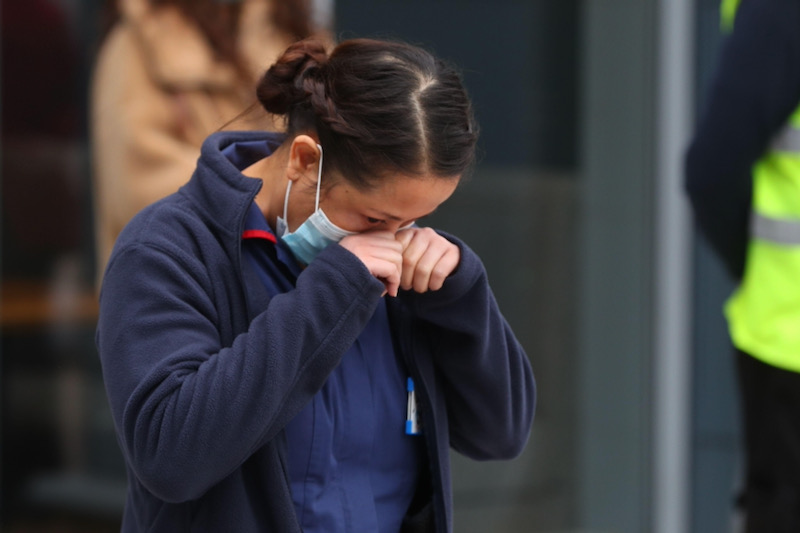Today marks the anniversary of the beginning of the first lockdown in the UK. The intensity and longevity of the pandemic has impacted on us all and in ways that we could not have predicted. To date, more than 125,000 people have died. Many more are walking the painful journey of bereavement. A National Day of Reflection, led by Marie Curie , encourages us to pause to reflect, connect and support. Leading the Catholic Bishops’ encouragement for this initiative, Cardinal Nichols and Archbishop McMahon remind us of the centrality of prayer, recommending that everyone who is able make a special visit to pray in front of the Blessed Sacrament that day.
While many of us have become accustomed to the virtual communities that have emerged out of necessity over the last twelve months, there is still nothing quite the same as being physically present, to the Lord in the tabernacle, and to one another. This feeling has manifested strongly in the deeply human desire to be with the dying. Lockdown has thrown the dark shadows of loneliness and isolation in the last days and hours of life into sharp focus. Healthcare staff did their best yet still felt helpless. Family and friends have had to stay away.
Into this heightened awareness of the importance of being with for the dying, the Centre for the Art of Dying Well, based at St Mary’s University, Twickenham contributes its own long-held belief: “No-one should die alone . . . unless they want to.” In the same week as we look back over experience gained during the pandemic, we celebrate a new beginning with the launch of an End of Life Companionship project in partnership with the Society of St Vincent de Paul. Arguably, there could be no better time as our nation looks towards rebuilding foundations for a more caring post-pandemic society.
The Society of St Vincent De Paul has nearly ten thousand members in England and Wales and a long tradition of support for the most needy. St Vincent himself, whose spirituality guides the members to this day, was deeply influenced by his experience at the bedside of a dying man. Members have a compassionate heart for the sick and dying and a passion to support them and the family and friends that surround them, translating concern into action. The Society, with its robust national organisation and structure of Conferences at parish level is ideally suited to add this sensitive ministry to its portfolio of services.
The Centre for the Art of Dying Well brings the fruits of research and professional expertise in offering hope-filled advice, practical and spiritual support to those faced with the realities of death, dying and bereavement. Both the Centre for the Art of Dying Well and the SVP are sustained by their Catholic ethos and a common understanding that whilst their mission is firmly rooted in faith, their call is to be at the service of all.
The End of Life Companionship project is centred around an introductory training course designed to be accessible to all SVP members, and with the potential to extend to others, whether or not they have prior experience of being with the dying. The aim is to train 500 companions during the next 18 months. It is hoped that each of these will go on to support at least three people facing the end of their lives within the duration of the project which is funded until the end of 2022. Companions will feel better equipped to support family and friends should the need occur, they may feel called to offer themselves in their parish, local community and care homes or they may choose to take further training to volunteer in healthcare settings such as hospitals and hospices. Other strands to the project include research, an academic and practitioners conference and building networks with professionals and institutions operating similar programmes.
People who work alongside the dying and those close to them are all too aware of the huge privilege of being present at this difficult but sacred time. Being with someone who is dying, helping them to live as fully as they can while they can and then gently allowing them to let go, has the potential to bring an added quality of peace to their death. It is the work of family and friends, of carers and healthcare professional, of priests and people from the Church community. As complementary members of this team, End of life companions can offer a different face, a listening ear, respite for carers, help with practical tasks and prayerful presence. It is a simple and flexible service with life-changing possibilities, not only for the dying person and those who grieve their passing but also for companions themselves as they grow in understanding of the great mystery that is life and of which death is just one part.
Lynn Bassett is a retired healthcare chaplain. She has a PhD in palliative care and is a trainer and course creator for the Art of Dying Well.



 Loading ...
Loading ...
What do you think?
You can post as a subscriber user ...
User comments (0)